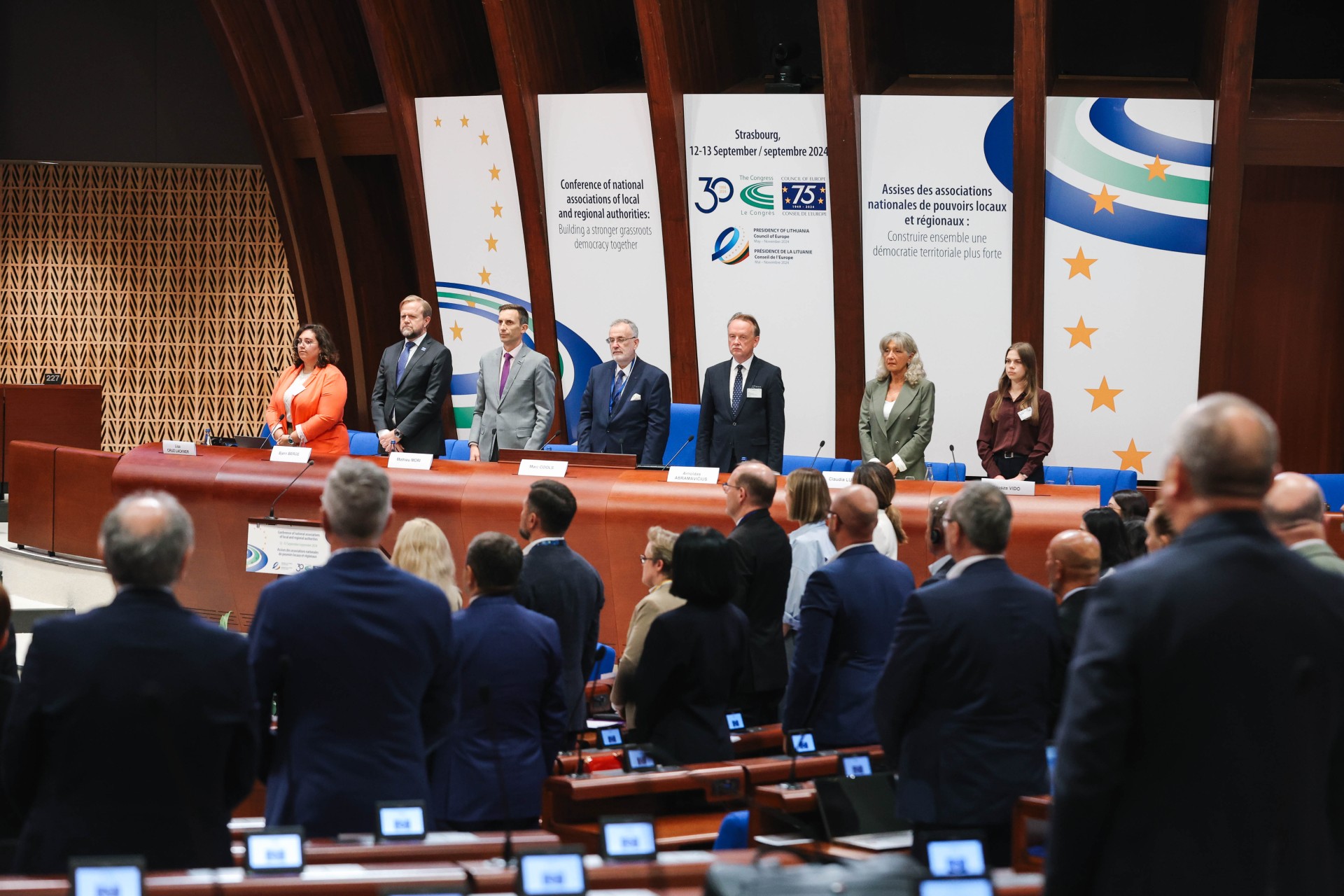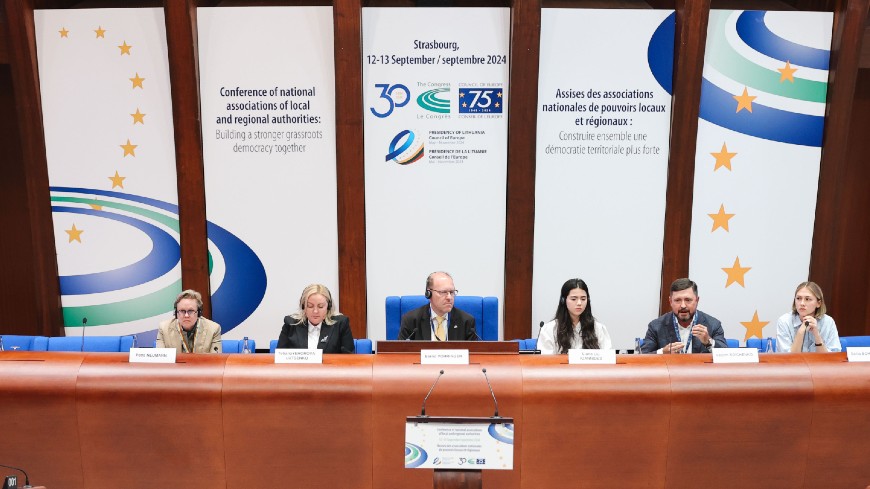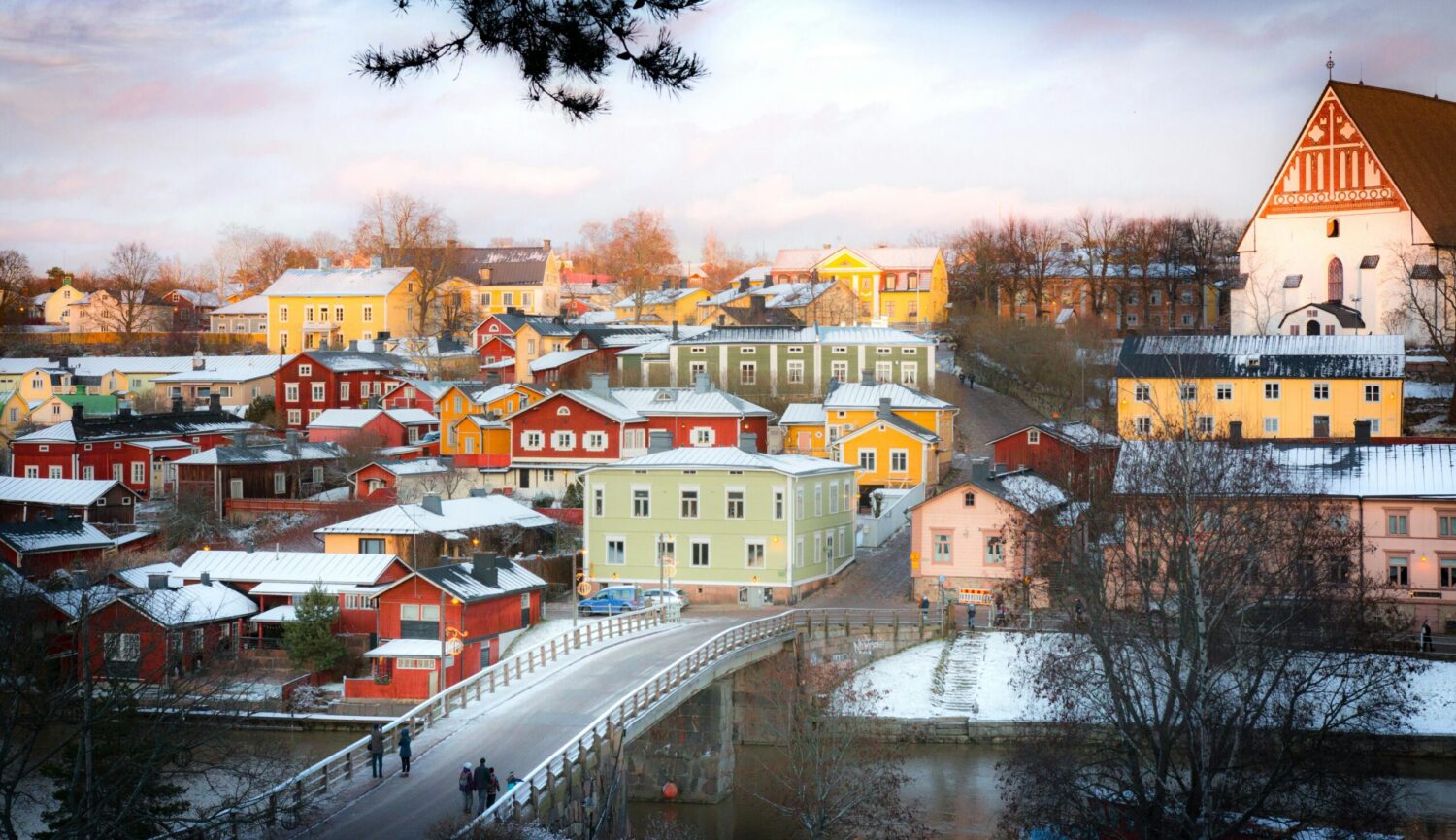Politics
Stop the race to the bottom: LEFT MEPs lead the charge for fair working conditions

On 1 October, over 1,000 essential workers from nine EU countries will rally in front of the European Parliament in Brussels, calling for urgent reforms to the EU’s public procurement rules. The Left stands in solidarity with these workers, advocating for stronger collective bargaining rights, improved working conditions, and public contracts that prioritise quality services over corporate profits.
Left MEP Li Andersson (Vasemmistoliitto, Finland), Chair of the Committee on Employment and Social affairs in the European Parliament:
“Competitiveness threatens to turn into a race to the bottom in terms of workers’ rights. Therefore we need better public procurement rules and strong emphasis on social criteria. We must ensure good, healthy and safe jobs for the people in Europe. When using public money, we must set an example – as we must have policies that strengthen the European Social Pillar, it’s also our responsibility to promote collective bargaining.”
Across Europe, millions of workers rely on public contracts for their livelihoods. Yet, research from UNI Europa exposes a troubling reality: half of public tenders in the EU are awarded solely based on the lowest price, disregarding the social impact on workers and communities. This practice flies in the face of the European Commission’s commitment to improving job quality and expanding collective bargaining to secure fair wages and better working conditions for all workers.
As European Commission President Ursula von der Leyen gears up to revise the EU Public Procurement Directive, essential workers are making their voices heard, especially after the glaring omission of a portfolio dedicated to quality jobs and social rights.
This is a pivotal moment – a chance to finally address the needs of the very people who make these services possible.
The Left unequivocally opposes this broken system of public procurement that puts corporate greed ahead of workers’ livelihoods. Europe must no longer be driven by deregulation and profit-hungry corporations; instead, it should be shaped by robust public investment, the protection of workers’ rights, and an unwavering commitment to social and environmental justice.
Politics
Local and regional authorities play a crucial role in building resilient democratic societies: conference hosted by Council of Europe Congress

The role of local and regional authorities in effectively responding to the challenges facing European democracies, in supporting Ukraine, protecting human rights, saving the environment, and enabling young people’s involvement is the focus of a conference of associations of local and regional authorities from the Council of Europe’s 46 member states, that started on 12 September.
The conference was opened by Marc Cools, President of the Congress of Local and Regional Authorities; Arnoldas Abramavičius, Vice-Minister of Interior, on behalf of the Lithuanian Presidency of the Committee of Ministers; Bjørn Berge, Deputy Secretary General of the Council of Europe; and Congress Youth Delegate from Andorra Lisa Cruz Lackner.
Ekrem Imamoglu, Mayor of Istanbul and President of the Union of Turkish Municipalities, and Gunn Marit Helgesen, President of the Norwegian Association of Local and Regional Authorities and President of the Council of European Municipalities and Regions, opened the debate on the role of national associations in strengthening territorial democracy.
“Resilience, reconstruction and reform of Ukraine”, “Boosting democracy by engaging all citizens” and “Local innovation for stronger local authorities” are the themes of the round tables to be held as part of the conference.
On 13 September, the event participants adopted a joint declaration to reaffirm the commitment to the Council of Europe’s values and standards.
The event, which was streamed online, coincided with the Council of Europe’s 75th anniversary and the 30th anniversary of the Congress, and is held under the auspices of the Lithuanian Presidency of the Committee of Ministers.
Politics
Resilience and reconstruction of Ukraine: Call for expanded partnerships with Ukrainian municipalities

There is a need for expanding municipal partnerships and co-operation between Ukrainian and other European municipalities, and for sharing good practices of municipal support for rural and small communities to increase their resilience; European local authorities must also pass a common motion of support to Ukraine and against the Russian Federation and develop projects to support protection, recovery and reconstruction in Ukraine. The Congress should help to raise awareness of Ukrainian local authorities on how to make use of the Council of Europe’s Register of Damage for Ukraine, while donors – such as Ukraine Facility – should invest more in education, with a focus on youth, and in developing social housing for internally displaced persons (IDPs).
These were some of the conclusions from the round table on “Resilience, reconstruction and reform of Ukraine” held as part of the Conference of associations of local and regional authorities on 12 September 2024 in Strasbourg. During a highly solemn and emotional debate, the participants stressed that reconstruction and reform required new strategies, laws and capacities, as well as joint positions and dialogue, and that reconstruction was not only about infrastructure but also about recovering communities, reconstructing the social cohesion and restoring cultural heritage as a reflection of the Ukrainian identity. Ukrainian mayors had additional responsibilities due to the war as they had to address the needs of soldiers, residents and displaced persons while also working on reconstruction; and the Ukrainian young people suffered from multiple challenges due to the disrupted education and feelings of despair, anxiety or depression, highlighting the need for a public mental health system.
“As co-organisers of Ukraine Recovery Conference 2024 we continue our work to expand partnerships at local level, since municipalities do a lot for Ukraine’s reconstruction and recovery. Let us join efforts for every Ukrainian municipality to establish cooperation with a municipality from other European country,” underlined in her video message Svenja Schulze, Federal Minister for Economic Cooperation and Development of Germany. Vitali Klitschko, President of the Association of Ukrainian Cities (AUC) and Mayor of Kyiv, referred in his video message to the Concept for the Recovery of Local Self-Government in Ukraine, developed by his Association, stressing that “it is important that local self-government is preserved today and restored everywhere after our Victory”.
“As local self-governments, we see our key goal as bringing people back to Ukraine from abroad and restoring life in de-occupied territories, and your assistance is key to sustainable development for our communities. Together with international partners, we are launching the Community Recovery School, which will consolidate the best practices of post-war reconstruction and create a solid foundation for the recovery of Ukrainian communities,” said Vadym Boichenko, Mayor of Mariupol and Chair of the AUC Section on the Development of De-occupied and Temporarily Occupied Municipalities.
Tetiana Yehorova-Lutsenko, President of the Ukrainian Association of District and Regional Councils and Chair of the Kharkiv Regional Council, spoke of elaborating a national concept for the development of Ukraine’s regions based on regional strategies, which should become the foundation for Ukraine’s recovery and development. Petra Neumann, Legal Adviser in the Register of Damage for Ukraine, referred to an outreach strategy involving local and regional authorities.
Congress Youth Delegate from Ukraine Sofiia Bohdanova concluded the debate with the following words:“Young people in Ukraine hide everything inside. Far away. So deep. Because we understand that we can’t balance on the rope with baggage filled with doubts and fears. We go where we feel scared because we need to know what is waiting for us at the end of this rope.”
Politics
Finland officially banned the purchase of property by Russian citizens

The Ministry of Justice of Finland approved last week a law that prohibits the sale of real estate to citizens who endanger the independence of Finland.
The document signed by the Minister of the Supreme Court has already been published.
The document says that the main purpose is to protect the national identity of Finland. For the preparation of the legal proposal for the prohibition of foreigners to carry out transactions with Finnish real estate, it was officially announced at the end of August.
The restrictions will apply to the purchase in Finland not only of residential properties (apartments, houses), but also of agricultural lands, as well as land and office properties.
Exceptions will apply to Russian citizens living in Finland with a permanent residence visa. The ban will not lock in those with dual citizenship.
At the same time, it is known that the authorities in Latvia are considering the possibility of forbidding the freezing of real estate similar to that in Finland. This is the latest message from the news portal Delphi.
Illustrative Photo by Paul Theodor Oja: https://www.pexels.com/photo/view-of-colorful-houses-in-the-city-of-porvoo-finland-3493651/
-

 Sports6 days ago
Sports6 days agoAnna Kalinskaya ready for comeback in Beijing WTA 1000
-

 Sports6 days ago
Sports6 days agoLouis Vuitton Cup final, Luna Rossa set for battle with Ineos
-

 EU & the World5 days ago
EU & the World5 days agoWhy Is Hoda Kotb Leaving ‘Today’? Her Reason Revealed
-

 Sports5 days ago
Sports5 days agoDerrick Rose, the youngest MVP in NBA history, retires.
-

 Sports5 days ago
Sports5 days agoLouis Vuitton Cup final, Luna Rossa wins first race
-

 EU & the World6 days ago
EU & the World6 days agoEvacuation Zones From Hurricane Helene: Florida County Shelters After Storm Hits
-

 EU & the World4 days ago
EU & the World4 days agoHow Eric Adams and Diddy Are Connected: All the Details You Need to Know
-

 Sports6 days ago
Sports6 days agoAllianz Milano, the latest market coup is Jacopo Larizza








